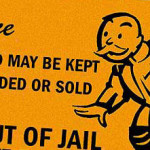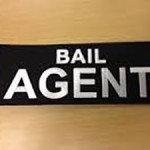What Is a Bail Bond? A Simple Guide for First-Time Defendants & Families in North Carolina
Getting a phone call that a loved one has been arrested is one of the most stressful moments anyone can face. Most families don’t know what to do next, how the system works, or where to start. That’s where understanding what a bail bond is becomes important.
This guide explains what bail is, how bail bonds work, why they exist, how the process goes in North Carolina, and what people should expect at each step. We’ll break everything down in a simple way so you can feel calm, informed, and ready to take action.
What Is a Bail Bond? (Simple Explanation)
A bail bond is a financial guarantee used to release someone from jail before their court date. Instead of paying the full bail amount set by the judge, a person can go to a bail bond company, pay a smaller fee, and the company covers the rest.
Think of it like this:
-
The court wants a promise that the defendant will show up to court.
-
Bail is that promise.
-
If the defendant cannot afford the full bail amount (which can be thousands of dollars),
a bail bond company steps in and guarantees it for them.
This helps people get out of jail fast so they can:
-
Work
-
Care for family
-
Prepare their legal defense
-
Avoid sitting in jail for weeks or months
A bail bond keeps life moving while a case is still pending.
Why Do We Have a Bail System?
The bail system exists to help courts make sure defendants return to court without having to keep everyone locked up. It serves two main purposes:
1. Protect the public
People who pose a serious danger may be denied bail completely.
2. Ensure defendants return to court
Instead of locking everyone in jail until trial, the court uses money as security.
Without bail, jails would be overcrowded, and many people who are not guilty would spend months behind bars waiting for a court date.
How Bail Bonds Work in North Carolina
North Carolina has a clear and structured bail bond system. Here’s the simple version:
-
A judge sets the bail amount.
-
If the amount is too high, the family calls a licensed bail bond agent.
-
The agent charges a premium (a small percentage of the full bail).
-
The agent posts a bond with the court.
-
The defendant is released from jail.
-
The defendant must attend all court dates until the case is finished.
The bail bond company promises the court that the defendant will show up. That’s why the agent has to check in with the defendant and make sure they stay on track.
What Happens After Someone Gets Arrested? (Step-by-Step)
The arrest process feels confusing, but here is what actually happens:
Step 1: Arrest
The person is taken to the local jail, fingerprinted, and booked.
Step 2: Bail Hearing or Magistrate Review
A judge or magistrate decides:
-
Should bail be allowed?
-
How much should the bail be?
-
What conditions should be added?
Step 3: Bail Amount Is Set
Depending on the charge, bail can range from a few hundred dollars to tens of thousands.
Step 4: Family Calls a Bail Bond Agent
Most people cannot afford the full bail amount. That’s where a bail bondsman comes in.
Step 5: Paperwork + Payment
The family signs a short agreement and pays the bail bond fee.
Step 6: Defendant Gets Released
Most releases happen within a few hours after the bond is posted.
Step 7: Attend All Court Dates
As long as the defendant shows up, the process continues smoothly.
Types of Bail in North Carolina
There are several kinds of bail options here in NC. Knowing them helps families understand what they’re dealing with.
1. Written Promise to Appear
No money required. The defendant promises to return to court.
2. Unsecured Bond
The defendant does not pay money upfront, but owes the bond amount if they miss court.
3. Secured Bond
Money or property must be deposited to get released.
This is where a bail bond company is commonly needed.
4. Cash Bond
The full amount must be paid directly to the court.
5. Property Bond
Land or real estate is used as collateral — a slow and complicated process.
Most families choose secured bail bonds, because they are affordable and fast.
What a Bail Bond Agent Actually Does
A bail bond agent’s job is much more than filling out paperwork. They:
-
Help families understand the bail process
-
File all legal documents needed for release
-
Guarantee the full bail amount to the court
-
Make sure the defendant knows their court dates
-
Assist defendants in staying compliant with court rules
-
Provide support throughout the legal case
A good bail bond company like DNA Bail Bonds guides families through one of the hardest moments of their lives with respect and clarity.
How Much Does a Bail Bond Cost?
In North Carolina, the typical bail bond fee is a percentage of the full bail amount.
For example:
-
If bail is $5,000, the fee may be around $500–$750.
-
If bail is $10,000, the fee may be around $1,000–$1,500.
This fee is non-refundable because it pays for the service of guaranteeing the bail.
Some companies offer:
-
Payment plans
-
Low down payments
-
No-collateral options
-
Flexible financing for families
This helps people get out of jail even if they don’t have a lot of cash on hand.
What Happens If the Defendant Misses Court?
Missing court is serious, but here’s what actually happens:
1. The judge issues a Failure to Appear (FTA).
This can add fines and extra charges.
2. The bail bond company is notified.
They must return the defendant to court or risk paying the full bail amount.
3. The bond may be revoked.
This means the defendant is taken back into custody until the next hearing.
4. The court may reschedule the hearing.
Often, the situation can be fixed quickly if handled fast.
Most of the time, people miss court because of confusion about the date, transportation, or emergencies — not because they want to run. A good bondsman helps solve these issues before they become serious.
Common Myths About Bail Bonds
Let’s clear up some of the biggest misunderstandings.
Myth 1: Bail bonds are only for dangerous criminals.
Not true. Most people who use bail bonds are everyday people who simply can’t afford the full bail amount.
Myth 2: You lose your house if you get a bail bond.
Collateral is not required in most cases.
Myth 3: Bail bonds are illegal in some states, so they’re unsafe.
Bail bonds are fully legal and regulated in North Carolina.
Myth 4: If someone is innocent, they shouldn’t need bail.
Bail is not about guilt. It is about guaranteeing someone will return to court.
How Families Should Choose a Bail Bond Company
Not all agencies are the same. Here’s what families should look for:
✔ Licensed in North Carolina
This ensures the company is legally allowed to post bonds.
✔ Available 24/7
Arrests don’t happen on a schedule.
✔ Clear pricing
No hidden fees or surprises.
✔ Flexible payment options
Not every family can pay the full premium upfront.
✔ Local experience
A bondsman who understands your county jail helps speed up the release process.
✔ Respectful service
A difficult moment should be met with care, not judgment.
Frequently Asked Questions
Q1. How fast can a person get out of jail?
Most releases happen within a few hours after the bond is posted.
Q2. Do I get money back after the case?
The bail bond fee is not refunded because it pays for the service.
Q3. What if I don’t have the full fee?
Ask about low down payments or payment plans.
Q4. Can a bondsman refuse service?
Yes, if the situation seems risky or unsafe.
Q5. Can someone else be responsible for a defendant’s bail?
Yes. A friend or family member can sign as the co-signer.
Final Thoughts
Understanding what a bail bond is can turn a stressful moment into a manageable one. The process may feel confusing, but once you break it down, it’s simply a way to help people return home, go to work, care for their families, and prepare their legal defense.
A good bail bond company doesn’t just post bonds — it supports people during a difficult time with honesty, patience, and guidance.
If you or someone you care about ever needs help navigating the bail process in North Carolina, knowing how it works gives you the power to make the right choices.





